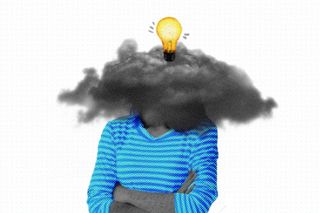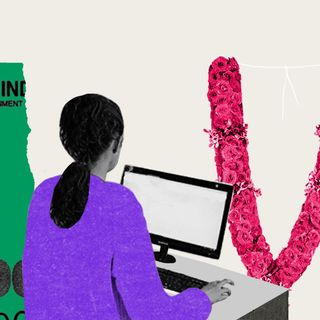
Why We Find Pessimists to be More Intelligent
By seeming rather oblivious to risks that a pessimist would hurry to point out, optimists can end up looking less intelligent by default.

Here’s a thought experiment. If a film reviewer goes on to praise a movie without a hint of criticism — of its narrative, its cinematography, its direction, or even its impact upon society — their review is often relegated to the status of a “paid review.” They are deemed to be a sycophant. A critical review, on the other hand, isn’t generally subjected to the same biases: it is treated as an intelligent interpretation by audiences, who may not even agree with the reviewer’s take.
“For reasons I have never understood, people like to hear that the world is going to hell,” wrote Deirdre McCloskey, an economic historian. In other words, some modicum of critique and cynicism is encouraged, if not outrightly seen as a measure of competence.
Evidently, people are wired to perceive pessimists as more intelligent than others. “If you say the world has been getting better you may get away with being called naïve and insensitive. If you say the world is going to go on getting better, you are considered embarrassingly mad. If, on the other hand, you say catastrophe is imminent, you may expect a McArthur genius award or even the Nobel Peace Prize,” Matt Ridley, a British science writer, noted in his book, The Rational Optimist: How Prosperity Evolves. For reasons tangible and intangible, people have come to associate negativity and hopelessness with a higher degree of intellectual aptitude. How did this come to be?
For starters, pessimistic statements — the ones shrouded in doom and gloom — do a better job at grabbing people’s attention than optimistic ones. Quoting Morgan Housel’s book, The Psychology of Money, an article on CNBC, presents a comparative analysis, “‘If a smart person tells me that a stock pick that’s going to rise 10-fold next year, I will immediately write him off as nonsense; but, if someone… full of nonsense tells me that a stock that I own is about to collapse because of accounting fraud, I will clear my calendar and listen to his every word.'”
Related on The Swaddle:
Optimistic People More Likely to Get Scammed, Study Says
The reason behind pessimism’s appeal, here, lies in the fact that it is framed as a call for action. “Rethink your choices!” “Sell your stocks!” “Act on this now, or you will regret it later!” Optimism, on the other hand, largely tells people to stay the course — a statement that’s much easier to push to the back of one’s head during their daily hustle. Optimism doesn’t sound urgent, generally. It doesn’t tell people that something requires their immediate attention. And so, pessimists look like they’re the change-makers of society who are constantly shaking things up, while optimists seem like individuals who’re just happy and content to stay the course.
Moreover, optimists sound gullible — seemingly unreasonable in clutching on to their hopefulness. The positivity that defines optimism can come off as superficial; as such, it can resemble a “sales pitch;” after fielding a dozen calls a day from credit companies, that’s something we’re used to ignoring. Pessimism, however, sounds like advice that is both smart and caring.
Citing Housel again, the CNBC article says, “[I]magine someone writing this in the late 1940s after Japan was gutted in World War II and the future appeared bleak. ‘Look today it looks bad, but it won’t be like this forever. Within our lifetime, our economy will grow 15x pre-war levels. Our life expectancy will double. Our stock markets will rock. Unemployment won’t cross 6 percent for decades. We will become world leaders in electronic innovation. We will become so rich that we will own a decent chunk of Manhattan, and yes, America will be among our closest allies.’ Sound ludicrous, right? But that is exactly how it panned out.”
A corollary to this is also that pessimism is deeply linked to the present and the tangible. People who are cynical are so because they see and hear the realities of our world — which are harsh, morbid, even. As an article on Psychology Today reflects, there exists a perception — perhaps, rooted in reality — that greater intelligence brings greater cognizance of the complexities involved in any given situation; basically, that pessimism is simply an identifier of an intelligent mind. As Charles Darwin, regarded for his theory of evolution, had stated, “Ignorance more frequently begets confidence than does knowledge.”
Related on The Swaddle:
Why People Are Quite Likely to Be Unhappy in Countries Ranking High on Happiness
As a result of seeming rather oblivious to risks that a pessimist would hurry to point out, optimists can end up looking less intelligent by default — leading people to lend lesser weight to their opinions. “I’ve realized… why pessimism sounds smart: optimism often requires believing in unknown, unspecified future breakthroughs — which seems fanciful and naive. If you very soberly, wisely, prudently stick to the known and the proven, you will necessarily be pessimistic,” noted an article on The Roots of Progress.
Another reason behind the allure of pessimism is evolutionary — we may have evolved in ways that make it more appealing. We have evolved to expect the worst, explains Martin Seligman, psychologist and former President of the American Psychological Association. Speaking to GQ in 2018, Seligman said, “The species that [was] going through the Ice Ages had been bred, and selected, through pessimism. The mentality that said, ‘It’s a beautiful day in San Diego today, I bet it’ll be beautiful tomorrow’ got crushed by the ice… So what comes naturally to people is pessimism.”
Seligman’s explanation suggests that we’re, possibly, almost wired to find optimism — that seemingly cost our ancestors their lives — less prudent than its brooding cousin, pessimism.
It is unsurprising, then, that opinions like “optimism, like imagination, is childish in the best sense of the word,” or “I have never met an intelligent optimist,” exist on the internet. This this is not proof of pessimists necessarily being more intelligent than optimists; it simply attests to our perception of their relative degrees of intelligence.
Devrupa Rakshit is an Associate Editor at The Swaddle. She is a lawyer by education, a poet by accident, a painter by shaukh, and autistic by birth. You can find her on Instagram @devruparakshit.
Related


Working Women Are Less Favored by Matrimonial Suitors, Shows Research
